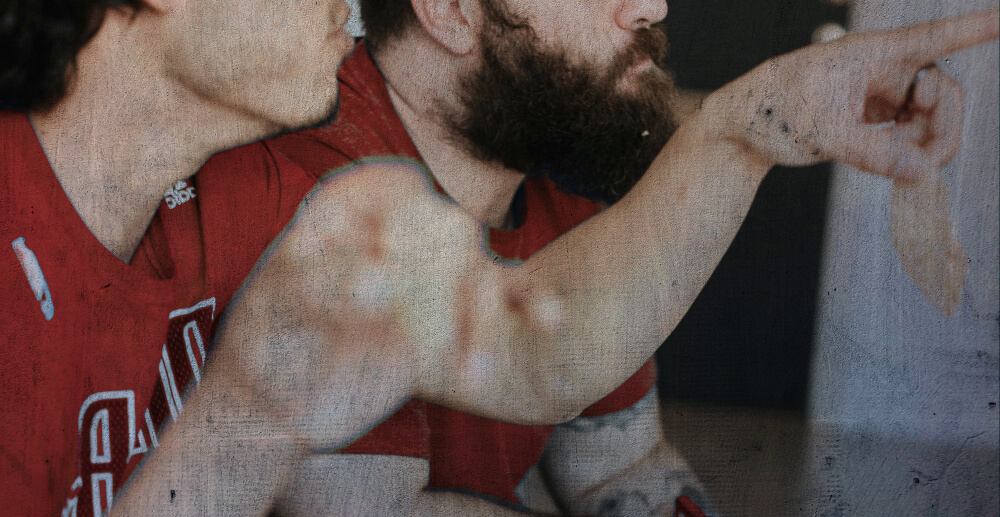Content warning: This piece discusses medical stigma and normal (non-obsessive) use of prescription pain medicine, as experienced by the author.
I’m a person in long-term recovery from substance use disorder, and I have no hesitation in taking pain medication when necessary. That hasn’t always been the case, especially in early recovery. Back then, I was terrified of risking my hard-won recovery by taking a potentially addictive substance. Twelve-step recovery taught me to be very fearful of any medication, even if it was prescribed. However, as I’ve grown in my recovery, I’ve gotten very clear on how to protect my recovery, advocate for myself, and learn how to discern what is best for my health, in collaboration with a medical professional. Despite many surgeries, a broken bone, and several prescriptions for narcotic medication, I recently celebrated 13 years of continuous recovery.
Navigating healthcare as a person in recovery
In the last four months, I have had two organs removed. These add to a total of four surgeries in the previous three years. Each time, I’ve had to take medication. Navigating health challenges while working and living in chronic pain has been debilitating, but it’s my recovery that ultimately helped me to overcome these challenges.
Over the last fourteen months, I’ve endured the pain of gallbladder disease. I had thousands of dollars worth of tests and procedures and was consistently dismissed by medical providers. Yet, I knew there was something wrong with my gallbladder. During that time, I worked two jobs and tried to have some semblance of a functional life. However, I lost nearly 25 pounds and could barely eat anything that contained fat. In the end, everything I ate hurt.
I jumped over endless hurdles in our medical system. We have systems in place to prevent overspending on care, but they cloak it under the guise of precaution and medical necessity. While I support medically necessary treatment and the importance of proper testing, I believe in the right to self-determination and patients’ expertise in their own bodies being carefully weighed into the diagnostic evaluation and treatment plan. Doctors consistently dismissed my experience. Left to the providers, I’d still be in pain today.
The greatest gift of recovery has been honing my intuition and discernment. When I first got sober, I unquestioningly trusted anyone in long-term recovery and any medical provider. They were the experts, I misguidedly thought. What I didn’t know then is that the person who truly cares about my care and knows what is best for me is, in fact, me.
I don’t dispute that there is great wisdom from people with lived experience of recovery. And those with a medical degree have a lot of hard-earned knowledge. But we have to find what works for us. Medical professionals are constrained by the systems they work within. For example, my providers told me that a routine ultrasound of my gallbladder revealed no evidence of gallbladder disease. However, a year later, after thousands of dollars in more tests, imaging, out-of-pocket bills, urgent care visits, and eventual surgery—the pathology revealed that I did indeed have gallbladder disease. Had I listened to my initial medical advice, I would still be in pain today, 14 months later, with a severely restricted quality of life.
I cannot stress enough how important it has been to learn how to advocate for myself, and that skill has served me well with the use of pain management, too.
Stigma can have a serious impact
When I first got into recovery, I always disclosed my substance use history. My neurodivergent brain is very literal, so I thought I should reveal on every medical questionnaire that I am a person in recovery. What I didn’t consider at the time was the bias that medical providers can hold about people who have or are in recovery from substance use disorders.
Many providers (and much of society) can have illicit implicit and explicit bias against people with substance use disorder, and using stigmatizing language can make it worse. In one study, when the person was described as a “substance abuser,” providers held less favorable views of people than when they were described as “having a substance use disorder.” Participants of the study assumed that the person described as a “substance abuser” was:
- Less likely to benefit from treatment.
- More likely to benefit from punishment.
- More likely to be socially threatening.
- More likely to be blamed for their substance-related difficulties and less likely that their problem was the result of an innate dysfunction over which they had no control
- Able to control their substance use without help.
This kind of bias impacts not only how others view us but also access to care and the quality of care that people receive.
This was a study looking at how language use affects perceptions, but stigma shows itself in a lot of ways. I’m not saying that every provider actively stigmatizes people with substance use disorders, but many do hold biases they are unaware of.
In addition to being a person in recovery, I also inhabit a larger body. That means I also experience providers’ harmful stereotypes and biases about being fat. Similar to the stigma of substance use disorders, people hold biases about fatness being associated with obesity, laziness, irresponsibility, and a lack of self-control. I have had to eat a low-fat diet, don’t eat processed foods, and walk up to 10,000 steps a day. Yet, I’d argue stigma has played a significant role in my lack of care over the past year.
The importance of self-advocacy
My experience emphasizes the importance of self-advocacy. I, just like every other human being, deserve quality medical care. That means:
- I have the right to discern what works for my body.
- I have the right to challenge providers’ assumptions and direction of treatment if I feel they are holding biases based on my identities.
- I have the right to ask for the quality of care I need to address my health concerns.
- I have the right to be selective about disclosing my recovery history.
- I have the right to give feedback.
- I have the right to ask for a second opinion.
When I do take pain meds, here’s what I do to maintain my recovery
During each post-operative period, I was prescribed narcotic medication. I want to emphasize here that deciding whether to take medication is a personal decision that we can only determine for ourselves. Providers usually prescribe a short course of opioid medication post-surgery, but you have the right to take it or decline to use it. I am sharing what I, personally, chose to do, but you need to make your own decisions.
I also want to emphasize that I don’t automatically take every medication I am prescribed. I go through a careful process of weighing the pros and cons of each situation. With more serious and painful surgeries, I’ve generally opted in favor of taking the medication. But I do exercise caution and implement some safeguards, which have included:
- Ask for help: The first time I took a prescription opioid, I asked my roommate to hold the medication and give me my dose on a schedule.
- Keep a log: Later in recovery, when I felt comfortable that I could trust myself with the medication, I set up a paper log where I wrote down the days and times I took the medication.
- Set a timer: It can be essential to get ahead of pain. This means taking the medication as prescribed rather than waiting until I feel the pain. I would set timers when I was due to take the next dose.
- Alternate less intensive medication: As I tolerate ibuprofen and Tylenol well, I alternated these with the narcotic medication, under medical advice. This method made it easier to stop the opioids sooner when I felt I could tolerate the pain with just ibuprofen and Tylenol.
- Dispose of medication ASAP: When I stopped taking the opioids, I had several left in the bottle. Rather than keeping them or risking them getting into the wrong hands, I took them to a pharmacy to dispose of them safely.




